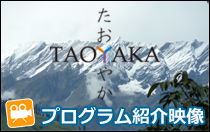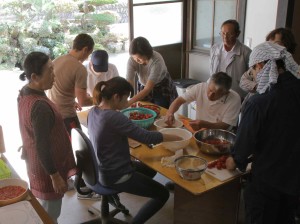オンサイト・チームプロジェクト
- Team 17: Empowerment as a Factor of Student Migration: Action Research in Myanmar (2019年10月 – 2021年8月)
- Team 16: Municipal Solid Waste Management, Kerala, India (2019年4月 – 2020年2月) / ワークショップ:最終報告会
- Team 15: Solution for Tackling Challenges in Disadvantaged Area through Sharing Images of Local People (2019年4月 – 2020年4月) / ワークショップ:最終報告会
- Team 14: Technology in Rural Development:HelloGoGo: How a Mobile Application Could Potentially Revitalize a Rural Japanese Community Through Tourism:Case Study: Iinan Cho,Shimane (2018年7月 – 2019年4月) / ワークショップ:最終報告会
- Team 13: Towards a holistic view of organic farming in Hiroshima Prefecture, Newcomer organic farmers, Access to Market, Appropriately scaled technology (2018年7月 – 2019年4月) / ワークショップ:最終報告会
- Team 12: A case study from Yutakamachi Osakishimojima island, Attract potential in-migrants, improving older people’s quality of life, Evaluating accessibility (2018年7月 – 2019年4月) / ワークショップ:最終報告会
- Team 11: Interdisciplinary Analysis of Local FarmingPractices and Quality of Life Issues in Kita Hiroshima (2017年10月 – 2018年9月) / ワークショップ:最終報告会
- Team 10: Building Resilient Communities Merging Traditional Culture and Child-Centered approach for Disaster Risk Reduction in Bhaktapur (2017年10月 – 2018年9月) / ワークショップ:最終報告会
- Team 9: Promoting Agriculture Development in Hilly and Mountainous Area in Hiroshima (2017年10月 – 2018年9月) / ワークショップ:最終報告会
- Team 8: Exploration of factors affecting quality and child friendly education in developing countries with special reference to Myanmar and Nepal (2017年10月 – 2018年9月) / ワークショップ:最終報告会
- Team 7: Prevention of wild animal damage and rural revitalization (2017年4月 – 2018年2月) / ワークショップ:最終報告会
- Team 6: Revitalizing Village Hub through Local Transport Services (2017年4月 – 2018年2月) / ワークショップ:最終報告会
- Team 5: Enhancing Tourism Development at Mitarai on Osakishimojima Island Mitarai District, Kure City, Hiroshima (2016年10月 – 2018年2月) / ワークショップ:最終報告会
- Team 4: Linkage between “community-based smart village” concept and “michinoeki” in the rural area of Japan Kodani and the surroundings (2016年10月 – 2018年2月) / ワークショップ:最終報告会
- Team 3: A Conjoint analysis of consumer’s preference on future organic solar PV India (Chhattisgarh, or other) (2016年10月 – 2018年2月) / ワークショップ:最終報告会
- Team 2: Revitalization of Kita-Hiroshima by eco-tourism (2016年4月 – 2017年2月)
- Team 1: Development of biomass-based ecotourism in Kita-Hiroshima, Japan (2015年4月 – 2016年2月)
テーマ: 北広島におけるバイオマスに基づくエコツーリズムの開発, Development of biomass-based ecotourism in Kita-Hiroshima, Japan(2015年度)
1)対象地域:北広島町
1.農作物の生産量を増加させる
2.トマトの残渣による再生可能エネルギーを開発する
3.環境負荷が小さい新しいビジネスモデルを提案する
4.多くの居住者を誘致する
5.観光客にとって魅力的な地域へ目指す
6.北広島での第6次産業を促進する要素としてトマト収穫の可能性を分析する
3)活動
a) トマト
北広島町で最も生産されており、農地や食物や資料の生産だけでなく、エネルギー生産にも利用できるため、エネルギー生産の供給原料として候補にあがった。
- 超臨界水ガス化(SCWG, Supercritical Water Gasification)によるエネルギー生産を提案。
- 付加価値製品としてドライトマトの開発を行った。ドライトマトの官能検査と支払意思額(WTP)調査を実施。
b) サイクリング
サイクリングツアー、サイクリングマップといったスポーツツーリズムの可能性を見つけるために、対象地域を調査。
4)結論
- トマトの残渣によって得られたエネルギーはビニールハウス2棟を温めるだけのエネルギーにしか満たず、トマトの生産量の増加は0.03%(0.2t)にとどまった。
- SCWGの熱によって作られたドライトマトは、新鮮なトマトと比較して1062%もの付加価値を付けることができた。ワークショップにより地元住民の方々にレシピを紹介した。製品評価は市場調査とアンケート調査で行った。
- 北広島でのルート調査とサイクリングツターの結果はサイクリングマップのデザインに応用した。このマップはサイクリングツアーの促進媒体となることを目標に配布される。






